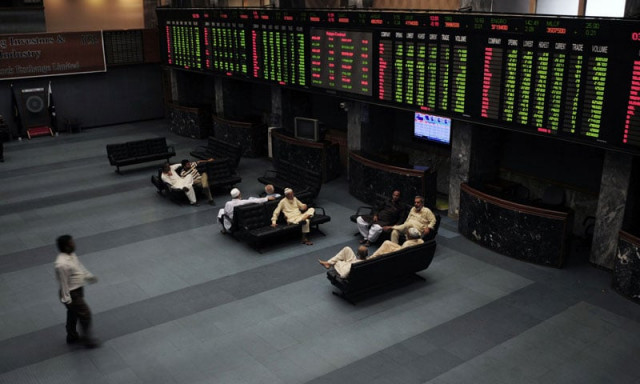Defying the odds: Stock market sell-off a blessing in disguise for value hunters
Investors who buy when everyone is selling will enjoy long-term benefits

Pakistan Stock Exchange. PHOTO: REUTERS
MSCI has many indices and sub-indices but the most famous ones are Frontier Market (FM) and Emerging Market (EM) indices which are actively and passively tracked by various fund managers and equity investors among the investment fraternity.
The stocks in the indices are categorised as small, mid and large-cap based on the market capitalisation criteria defined by the MSCI.
In the recently completed semi-annual index review on November 13, the MSCI decided to shuffle the constituents of the EM index by moving Lucky Cement and UBL to the small-cap category and excluding Honda Atlas and Maple Leaf Cement from this category.
The major reason for the reconstitution was the recent rout in the stock market where Pakistani market underperformed the overall MSCI EM benchmark by 15%.
As per the opinion of Standard Capital Securities Head of Research Faisal Shaji, the market has already factored in the news well in advance with sell-off and expects the total weightage of Pakistan in the MSCI EM index to slide to 0.037% from the existing 0.06%.
If we scan through the historic volatile relationship between MSCI indices and Pakistani stock market, we have mixed reminiscences. The period from 1994 to 2007 is still remembered as a golden era when Pakistan was part of the MSCI EM index and daily volumes were good and the enthusiasm level and participation was high. The financial tsunami of 2008 swept away all the euphoria when it finally hit our shores.
In a knee-jerk reaction, a notorious floor was placed in August 2008 by the regulator, thus denying the basic exit rights to investors. The carnage at the bourse did not remain unnoticed by the MSCI Barra for long as it finally removed Pakistan from the MSCI EM index in December 2008 and created a standalone MSCI Pakistan index.
The floor in the stock market was eventually lifted but Pakistan remained isolated till September 2009 when finally it was included in the MSCI FM index. Pakistani market rose significantly to gain a heavy weight in the FM index and passive MSCI FM funds were the main driving force behind the stellar performance by the stock market.
MSCI finally decided to put Pakistan back into the MSCI EM index in May 2017 based on its performance in the FM space. However, the timing of this decision was unfortunately not in favour of Pakistan as many investors were exiting emerging markets due to the US Fed rate hike expectations.
Also for the Pakistani market, the problems were compounded by the home-grown political uncertainty and rupee depreciation fears. All these factors resulted in an agonising year-long sell-off by foreigners which led to a sharp fall of over 30% in the KSE-100 index in a span of just a few months.
All these episodes, although unfortunate, create lots of blessings in disguise for value investors. It is natural that these events create panic and fear in the mind of an investor but the fact is that once the eye of the storm has passed, then fundamentals will prevail eventually.
Those who can filter facts through these noises and summon the courage to buy when everyone is selling and possess the capacity to sit tight will enjoy long-term benefits of the stock market investment.
The writer is a financial market enthusiast and attached to Pakistan stock, commodity and debt markets
Published in The Express Tribune, November 19th, 2018.
Like Business on Facebook, follow @TribuneBiz on Twitter to stay informed and join in the conversation.



















COMMENTS
Comments are moderated and generally will be posted if they are on-topic and not abusive.
For more information, please see our Comments FAQ